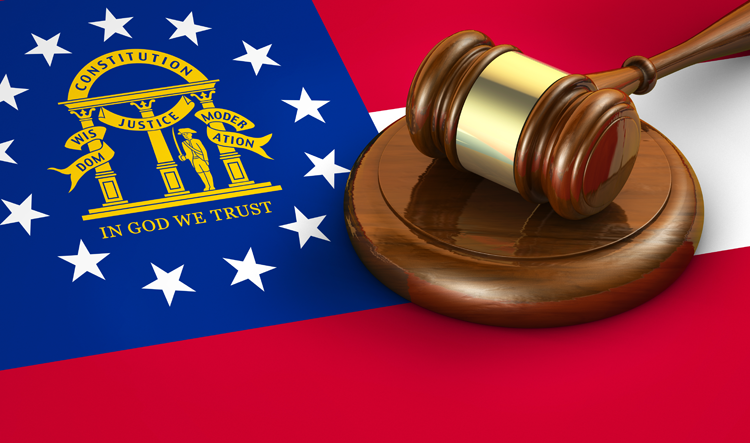[ad_1]
Ethics
Overwhelmed lawyer blew deadline and faked email to cover it up, disbarment order says

A lawyer who became overwhelmed with her caseload has been disbarred for faking an email to make it appear that her personal injury client fired her before she missed the deadline to file his lawsuit. (Image from Shutterstock)
A lawyer who became overwhelmed with her caseload has been disbarred for faking an email to make it appear that her personal injury client fired her before she missed the deadline to file his lawsuit.
The Georgia Supreme Court disbarred lawyer Andrea Jo Anne David-Vega in a March 5 decision.
Law360 has coverage, while the Legal Profession Blog published opinion highlights.
David-Vega submitted the fake email in her disciplinary case and in an October 2020 malpractice suit filed against her by the client. The fake email differed from other emails sent by the client, the Georgia Supreme Court said. It was in a different font and format; and it appeared to use perfect diction, capitalization and punctuation. She also faked a text and submitted it in the malpractice suit.
The ethics allegations against David-Vega were deemed to be admitted because she failed to file a timely answer to the ethics complaint by the State Bar of Georgia. She was, however, allowed to submit evidence in a hearing on aggravating and mitigating circumstances.
In that testimony, David-Vega admitted fabricating the email and text to make it appear that her client, Fadi L. Milan, had fired her before the statute of limitations expired.
Testifying in mitigation, David-Vega’s counselor said David-Vega had expanded her caseload in 2016 by becoming a special assistant attorney general representing the Georgia Division of Family & Children Services. As a result, she acquired 200 cases in Gwinnett County, Georgia, and 150 cases in a neighboring county. Yet she continued managing her own general practice.
“David-Vega became overwhelmed with her caseload,” the Georgia Supreme Court said, “but continued to take cases because she ‘did not know how to say no’ and felt unable to ask for help.”
David-Vega also helped with care for her mother and stepfather, who had become ill. She eventually “reached a point where she completely unplugged,” the counselor testified.
David-Vega had no prior discipline and expressed remorse for her actions. She also had a stellar representation among judges whom she appeared before.
Testifying in aggravation, Milan said he suffered permanent injuries to his eye, neck, head, back and brain in the auto accident for which he sought to file suit. He had debt collectors calling and couldn’t access his medical records that were being held by David-Vega.
Milan had retained David-Vega in August 2016, although there was no written contingency agreement, according to the Georgia Supreme Court’s opinion. She contacted the liability insurer for Milan but eventually cut off communication with the insurer.
David-Vega also failed to respond to Milan’s questions, even though he called her office over 65 times to ask about the status of his case between January 2019 and February 2020, the opinion said. He also continued to text and email her through April 2020.
Milan notified David-Vega that he was firing her in May 2020. The deadline for filing suit was August 2018. David-Vega falsely claimed that Milan fired her in March 2018, the opinion said.
Milan’s lawyer in the malpractice suit testified that David-Vega had lied, had failed to cooperate in the malpractice case, and had drawn out settlement negotiations for two years.
A special master had recommended a two-year suspension.
David-Vega did not immediately respond to an ABA Journal email seeking comment. The ABA was unable to leave a voicemail message for David-Vega at the number listed by the state bar because the mailbox was full.
[ad_2]




